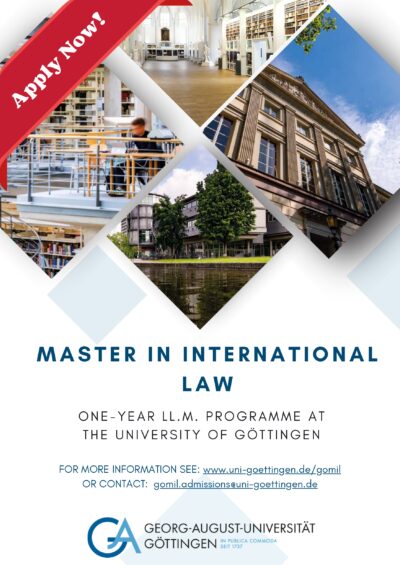The Complex Conflict
A Letter from Melbourne
Since the eruption of the conflict in April 2023, Sudan’s civil war has had far-reaching implications for various aspects of society. The outcomes include the destruction of social structures, a stifling economic situation, political instability, and dreadful humanitarian conditions.
The consequences have become particularly disastrous in Sudan’s Western region of Darfur. The region has been a hotspot of political violence and a web of hostilities between numerous militias and government forces since the reign of Al Bashir. The conflict is rooted in political and military grievances between the former coalition forces of the Sudanese Armed Forces (SAF) and the Rapid Support Forces (RSF) following the ouster of the country’s longstanding authoritarian leader, Omar Hassan al Bashir in 2019. Despite efforts to address the root causes and bring about peace, the situation remains dire, with civilians bearing the brunt of the conflict’s devastating impact. So, as the conflict continues to escalate without a predictable end, the intervention of the international community in de-escalating hostilities between the warring parties cannot be overlooked. The complex dimension that the conflict has taken is increasingly impacting the welfare of innocent Sudanese people. While an internal resolution remains the immediate attention, the conflict has a devastating effect on the neighbouring countries such as South Sudan, Chad, and Egypt, and adjacent regions.
Social Structures along Ethnic Boundaries
The social impact of the conflict is profound, with widespread displacement, loss of life, and trauma affecting communities across the country. According to Human Rights Watch (2021), the conflict has resulted in the displacement of millions of people, leading to the breakdown of social structures and networks. Displaced populations often face challenges in accessing basic services, education, and healthcare, further exacerbating social inequalities and vulnerabilities. Amnesty International states that the targeting of civilians, including women and children, has led to widespread human rights abuses and violations, undermining social cohesion, harmony and trust within communities as the conflict takes a dichotomized trajectory of ethnic and regional division. The use of sexual violence as a weapon of war has had devastating consequences on the physical and psychological well-being of survivors, contributing to a culture of fear and insecurity among vulnerable populations, as reported by Amnesty International. These factors, among many others, have led to a domestic crisis of immense proportions, with many people lacking access to basic needs such as food, water, and healthcare.
++++++++++Advertisement++++++++

Werden Sie Führungskraft des Polizeivollzugsdienstes der Polizei NRW und nehmen Sie maßgeblich Einfluss auf die Ausrichtung und Gestaltung polizeilicher Strategien.
Nur mit motivierten und zufriedenen Mitarbeitenden können wir die an uns gerichteten Erwartungen erfüllen. Daher hat Mitarbeiterorientierung bei der Polizei NRW einen hohen Stellenwert.
Alle Infos zu Voraussetzungen, Bewerbungsprozess, Auswahlverfahren und Konditionen finden sich auf: www.direkteinstieg-polizei.nrw [direkteinstieg-polizei.nrw]
Jetzt bewerben!
++++++++++++++++++++++++
Economic Impact
Given Sudan’s heavy reliance on oil revenues, disruption to production has compounded the country’s ability to curb economic strife. According to the World Bank, the conflict has led to the destruction of agricultural land, displacement of farmers, and disruption of trade routes, resulting in food insecurity and economic instability. The lack of access to markets, financial services, and employment opportunities has further exacerbated poverty and inequality in conflict-affected areas. Furthermore, the diversion of resources towards military expenditures and conflict-related activities has strained the country’s economy, leading to budget deficits, inflation, and reduced public investment in essential services such as healthcare and education. Hence, the economic consequences of the conflict have long-term implications for the country’s development and prosperity, hindering efforts to alleviate poverty and promote sustainable growth. While the country experienced slowed economic progress prior to the conflict, the United Nations Development Programme (UNDP) had established schemes that aimed to spur development across the nation’s 18 state offices through the four pillars and five portfolios development framework.
Widespread Political Instability
Correspondingly, the conflict in Sudan has had a profound impact on the country’s political landscape, contributing to instability, governance challenges, and power struggles among various actors. The lack of a comprehensive peace agreement and inclusive political process has hindered efforts to address the root causes of the conflict and build a sustainable peace. The fragmentation of armed groups, militias, and government forces has further complicated the political dynamics, making it difficult to achieve a unified approach to peacebuilding and reconciliation. A return to a civilian-led Sudanese government was an aspiration envisioned following the ouster of Al-Bashir in 2019. Bashir’s tenure was plagued by various human rights abuses that held him liable for crimes allegedly committed during his rule of the Sudan, according to the International Criminal Court (ICC) ruling.
Subsequent to the 2019 coup d’etat, a transitional government was established, jointly led by al–Burhan representing the military, and Abdalla Hamdok as the Prime Minister of Sudan. However, the absence of effective governance structures and mechanisms for conflict resolution has perpetuated cycles of violence and impunity, undermining the rule of law and accountability. Unfortunately, this tranquil period following the political demise of Al Bashir was short-lived when in 2021 the military dissolved the co-opted civilian-military government.
The competition over resources, power, and influence has fuelled political tensions and rivalries, impeding progress towards a peaceful and inclusive society in Sudan. Thus, the need for a regionally and internationally facilitated dialogue, and reconciliation between the SAF and the RSF is essential for a political settlement of the conflict. This will allow the country to rebuild from the trauma of the war while promoting a more stable and democratic future for Sudan, as observed by the International Crisis Group.
Worsening Humanitarian Crisis
The humanitarian impact of the conflict in Sudan is staggering, with millions of people in need of urgent assistance and protection. According to the United Nations Office for the Coordination of Humanitarian Affairs (UNOCHA), more than 24.8 million people in Sudan require humanitarian aid, including food, water, shelter, and healthcare. The lack of access to humanitarian assistance, protection, and basic services has left many vulnerable populations at risk of malnutrition, disease, and displacement. The International Organisation for Migration (IOM) approximates that 6.5 million people were internally displaced as of March 2024. Furthermore, the targeting of humanitarian workers, restrictions on access, and funding constraints have hindered efforts to deliver aid to those in need, exacerbating the humanitarian crisis in conflict-affected areas. Humanitarian organizations face challenges in reaching populations in remote and insecure locations, further complicating efforts to provide life-saving assistance and protection to civilians. Given these grave humanitarian crises, the international community must prioritize the protection of civilians, support humanitarian efforts, and advocate for a peaceful resolution to the conflict to address the urgent needs of the population affected by the crisis.
++++++++++Advertisement++++++++

The University of Göttingen, Germany, offers a new International Law LL.M this fall!
The Göttingen Master of International Law (GOMIL) is accepting applications for its inaugural academic year. GOMIL is a one-year master’s degree program, offered in English. It is designed to provide a deeper understanding of legal rules and standards of interstate relations and aims to prepare students for careers involving international law and policy. Deadline to apply is 1 May 2024 and classes begin on 1 October 2024. Apply online or e-mail gomil.admissions@uni-goettingen.de for more information.
++++++++++++++++++++++++
What next?
From my observations above, the conflict has undoubtedly had a multifaceted impact on the social, economic, political, and humanitarian dimensions of Sudanese society. This has led to widespread suffering and deprivation among the civilian population, particularly women, children, and the elderly. Therefore, an urgent intervention from the international community, such as the United Nations, can assist not only in addressing the root causes of the conflict but also in delivering a lasting political solution through an inclusive dialogue between the warring parties.
Similarly, I believe that supporting humanitarian organisations within the country is an essential step towards rebuilding a more peaceful Sudan. Addressing these significant impacts of the war is central to the general well-being of the Sudanese people, above the political interests of the belligerent parties. Therefore, given the dire economic and humanitarian situation generated by the conflict, the international community must stand in solidarity with the Sudanese people to end the violence. Additionally, there needs to be a collaborative effort by the SAF, the RSF and the international community to protect human rights and promote peace and stability in the country to alleviate the suffering of those affected by the conflict.
*
The Week on Verfassungsblog
There has been a lot going on in the field of reproductive and family law this week:
On Monday, the “Commission on Reproductive Self-Determination and Reproductive Medicine” at last presented its final report. The Commission deems egg donation to be constitutionally permissible. MAREN KLEIN does not consider this to be enough – she believes that the legislator is, moreover, obliged to legalize egg donation.
That same Commission only wants to allow (altruistic) surrogacy under strict conditions. LAURA ANNA KLEIN describes those conditions and exposes underlying conceptions about families and motherhood.
Those normative conceptions are a recurring theme: BETTINA HEIDERHOFF discusses them in her comment on last week’s decision of the Federal Constitutional Court on the right of fathers to challenge paternity. She considers the decision particularly interesting because it can be read as a note on the (long overdue) reform of the law of descent – and paves the way for it.
Finally, the Self-Determination Act was passed last Friday. After the Federal Constitutional Court had left only a skeleton of the Transsexual Act over the years, SUSANNA ROSSBACH celebrates the bill as a historic milestone. She, nonetheless, shows that problematic provisions persist.
During the Covid pandemic, the EU had its ‘Hamiltonian moment’ (at least according to Olaf Scholz). Now some people, amongst them PÄIVI LEINO-SANBERG, are wondering where all the money went and what procedures were used to disburse it. What should have been a glorious step towards European integration is now, it seems, being kept largely secret by the Commission. No documents, no information, no nothing. We – or rather Päivi Leino-Sandberg – won’t let this one go!
The Maltese EU Citizenship for sale, quelle horreur! I hear you sniffing with disgust and indignation. The case brought by the Commission against Malta is scheduled to be heard by the CJEU sometime later this year. Yet, who of the two, Malta or the European Commission, is really selling European values? JOSEPH H.H. WEILER uncovers double standards and calls upon the CJEU to exercise jurisdictional restraint. MERIJN CHAMON disagrees. In his rejoinder, from the perspective of “the profound values inherent in jurisdictional limits and constitutional procedures”, he argues the opposite. The principle that a Member State does not enjoy unfettered discretion under EU law in granting its national citizenship appears perfectly tenable.
Given frustrating delays from Brussels in defending the rule of law, HENRY BARRETT proposes a non-EU accountability mechanism – a so-called Rule of Law Commission – to bolster and reinforce commitments to rule of law issues among European states. Perhaps such a body will finally spur the European Commission into fulfilling its role as “Guardian of the Treaties.”
++++++++++Advertisement++++++++

![]()
The University of Amsterdam is currently looking for a Full Professor of European Studies, with a focus on EU Law in the Humanities, who has a proven track record of interdisciplinary research and teaching. The Chair’s research should contribute to academic and public debates on timely topics. The chair holder will be asked to develop a cogent vision of the relevance of EU Law in the Humanities and to propose an inspiring agenda that positions legal scholarship within a Humanities faculty.
Please find more information here.
++++++++++++++++++++++++
BERNHARD WEGENER takes a clear stand against the “sugary illusion of climate justice” on the occasion of the climate cases before the European Court of Human Rights. His stance had first appeared in German last week. MANUELA NIEHAUS takes up Wegener’s criticism but argues that climate litigation is an important tool in the hands of civil society, driving change, and that independent courts are an appropriate forum for the issue. BERNHARD WEGENER takes the conversation further and defends his argument that the complexities of climate change should not be before international human rights courts, but are a task for democratically elected legislators.
In the debate on how to better safeguard the Federal Constitutional Court, a working draft by the Federal Ministry of Justice now provides a basis for discussion. MICHAEL EICHBERGER welcomes this first step, but calls for two more in order to sufficiently strengthen the court’s normative foundation.
What potential for abuse does the pardon power offer an authoritarian-populist prime minister in Thuringia? VIVIAN KUBE and HANNAH VOS take the recent decision of the OVG Berlin-Brandenburg on the Federal President’s obligation to provide information on pardon decisions as an opportunity for a scenario analysis.
Following a constitutional complaint by online journalist Julian Reichelt, the Federal Constitutional Court (BVerfG) on Tuesday, after a very short period of proceedings, convincingly overturned a temporary injunction concerning him issued by the Higher Regional Court of Berlin. TOBIAS MAST and WOLFGANG SCHULZ have analyzed the court’s decision.
IBRAHIM KANALAN criticizes that Berlin segregates refugee children and adolescents from others in separate schools. This segregation is illegal, as it violates the constitutional right to education, as well as European and international law. This practice also recalls the US doctrine of separate but equal, under which black and white children and adolescents were taught in separate schools until 1954.
Following MARTIN NETTESHEIM‘s presentation in German last week, the English version of his article on the escalating socio-political charge of data protection law has now followed. Who knows, perhaps digital issues will be the next area in which the EU faces a fundamental debate on the depth and form of integration.
And finally, this week continued with four of our blog symposia.
CORINA HERI, PATRICK ABEL, JOHANNES REICH, and MARTA TORRE-SCHAUB contribute further perspectives on “The Transformation of European Climate Litigation”.
SAPTARSHI MANDAL, GAURI PILLAI, and GAURAV MUKHERJEE reflect on “Indian Constitutionalism in the Last Decade” from three different perspectives.
The criminalization of humanitarian action has become widespread in recent years and is likely to be exacerbated by upcoming reforms. VIOLETA MORENO-LAX argues in the blog symposium “Rethinking the Law and Politics of Migration” that there are legitimacy based limits to the EU legislator’s capacity to criminalize conduct that serves to uphold the human rights of migrants.
Finally, writing from Italy, GIUSEPPE DONATO concludes in our symposium “Banning Parties in Germany and Europe” that party bans there do not pose a serious threat to neo-fascist movements. Their application has so far been limited to organisations of small size and significance.
*
That’s all for this week. Take care and all the best,
the Verfassungsblog Editorial Team
If you would like to receive the weekly editorial as an email, you can subscribe here.



